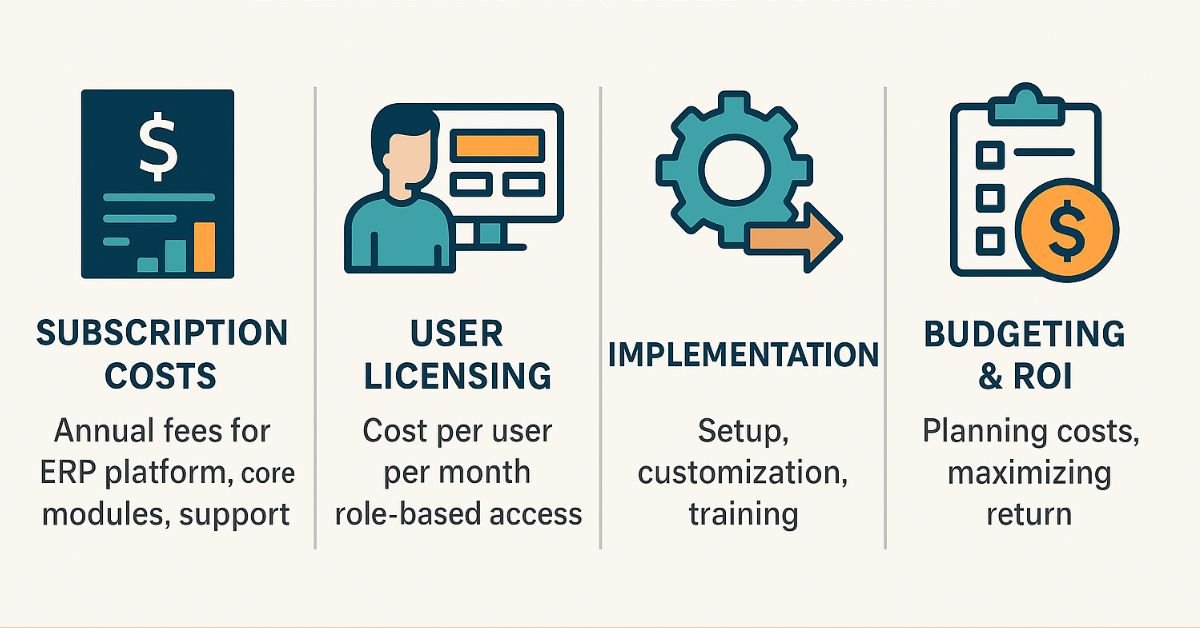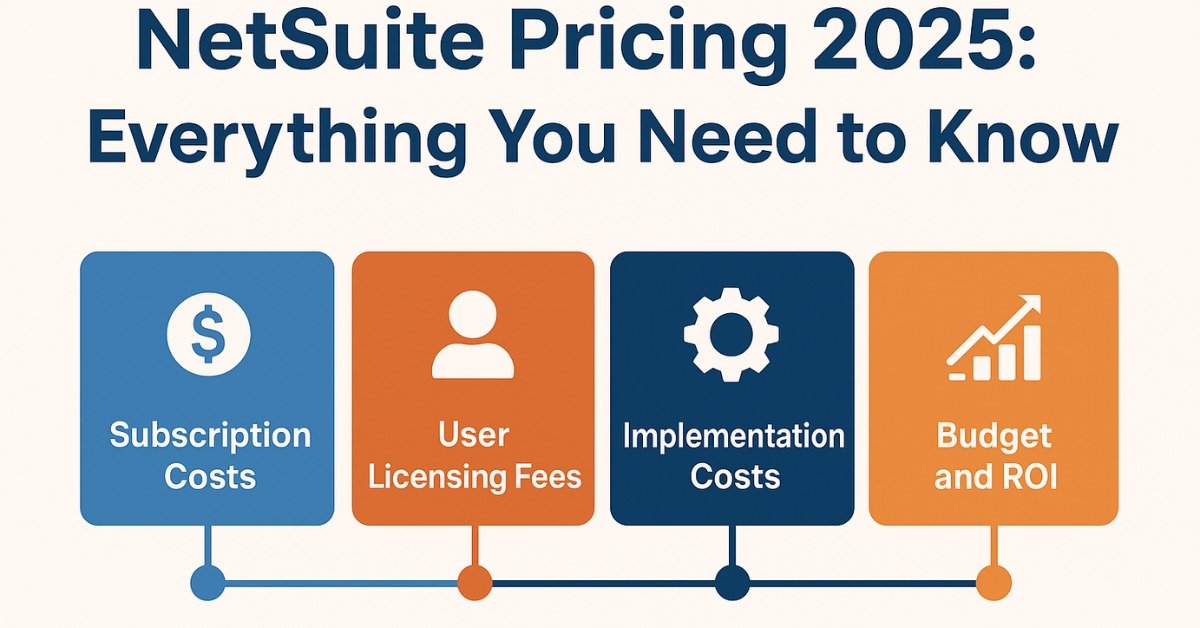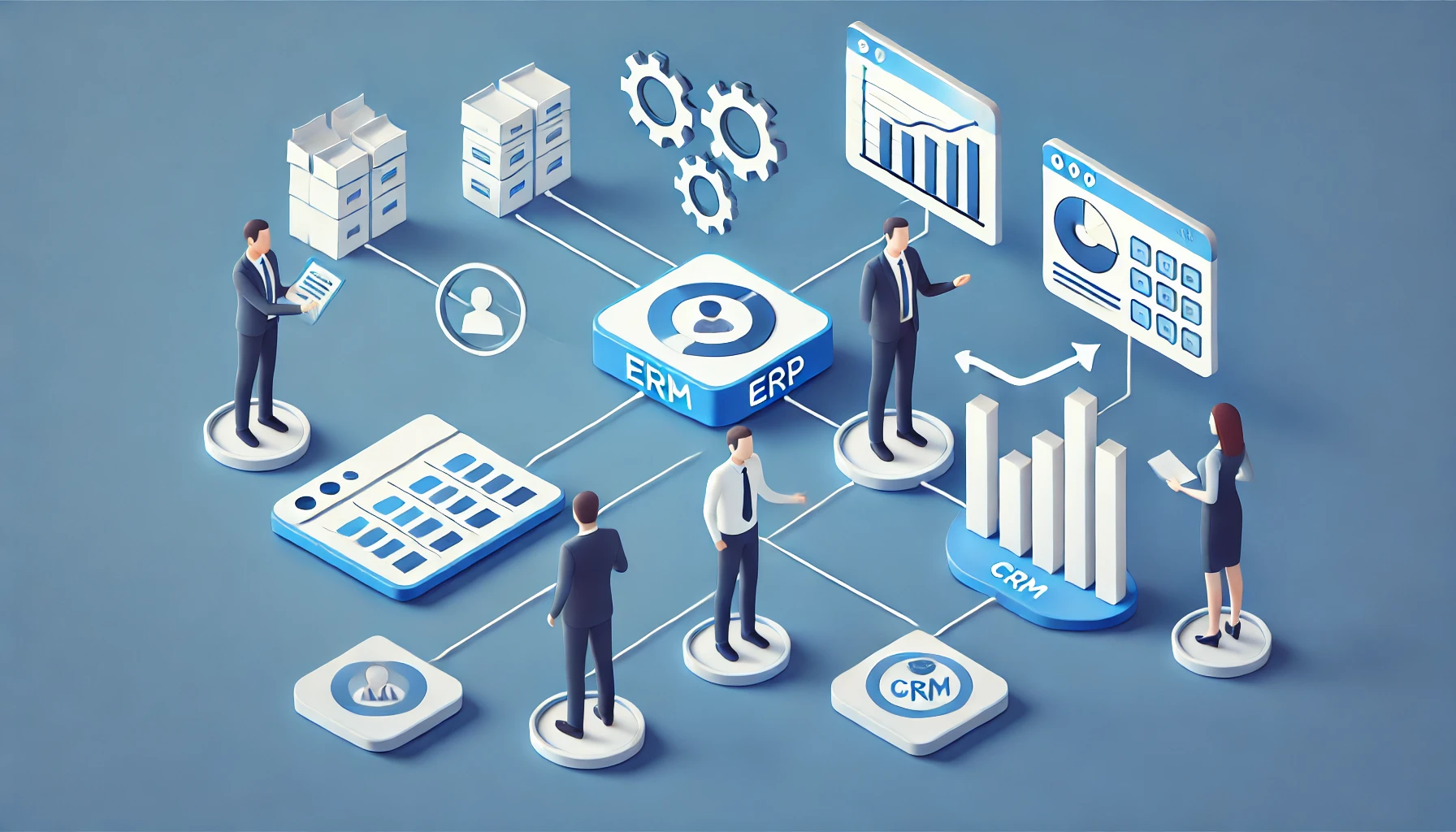NetSuite Pricing 2025: Everything You Need to Know
NetSuite remains one of the most popular cloud ERP systems in 2025, trusted by businesses of all sizes for finance, operations, supply chain, and CRM. While the platform offers powerful scalability, understanding its cost structure is not always straightforward. Pricing varies based on company size, industry, modules, and customization requirements.
For buyers, this raises practical questions: How much does NetSuite cost in 2025? What should CFOs budget for licensing, implementation, and support? And how can organizations plan for both the upfront investment and long-term value?
In this blog, we provide a complete guide to NetSuite Pricing 2025, including subscription models, per-user licensing, implementation expenses, and best practices for budgeting.
Before choosing an ERP, businesses must have clarity on pricing. NetSuite costs are not one-size-fits-all, and preparation ensures you make informed decisions.
1- Transparency for budget planning: Knowing the cost range allows finance leaders to allocate budgets accurately.
2- Alignment with growth strategy: Different NetSuite editions support different business sizes, so picking the right one ensures scalability.
3- Avoiding hidden costs: Implementation and customization expenses often exceed license fees if not planned properly.
4- Calculating ROI: Clear pricing helps CFOs weigh the upfront investment against expected efficiency gains.
NetSuite pricing starts with an annual subscription fee, which covers the ERP platform, core modules, and support. Costs vary widely depending on company size and industry requirements.
1- Small businesses: Subscriptions typically start around $15,000 to $25,000 per year, suitable for startups and growing firms.
2- Mid-market organizations: Pricing ranges from $40,000 to $80,000 annually, as these companies often need advanced modules and more users.
3- Large enterprises: Subscriptions can exceed $100,000 per year, especially when global operations and complex integrations are involved.
4- Industry add-ons: Retail, manufacturing, and service sectors may pay more for specialized modules such as SuiteCommerce, Advanced Manufacturing, or OneWorld.
NetSuite User Licensing Fees
User access drives an additional layer of cost. Each employee who needs access to the system must be licensed.
1- Full user licenses: These typically cost around $99 to $125 per month per user (about $1,200–$1,500 annually).
2- Employee center licenses: Designed for basic tasks such as timesheets or expense submissions, these cost significantly less, helping companies control budgets.
3- Role-based access: Businesses can optimize costs by assigning licenses only to users who need advanced functions, rather than giving everyone full access.
4- Scaling with growth: CFOs must plan for additional user costs as the business expands or as more employees need system access.
NetSuite Implementation Costs in 2025
Licensing is only part of the equation. Implementing NetSuite requires configuration, customization, and training. These costs are often larger than the subscription itself.
1- Small businesses: Implementation costs average $30,000 to $50,000, covering basic configuration and training.
2- Medium businesses: Implementation costs typically range from $60,000 to $100,000, as these firms require multiple modules and integrations.
3- Large enterprises: Costs can exceed $120,000 to $150,000+, especially with heavy customization or global rollouts.
4- Complex projects: Highly tailored implementations with third-party integrations can drive costs beyond $250,000.

Total First-Year Investment
When subscriptions, user licenses, and implementation are combined, businesses must plan for a substantial first-year spend.
1- Entry-level budgets: Small firms can expect to spend $25,000 to $50,000+ in the first year.
2- Growing mid-market firms: Budgets generally range from $70,000 to $150,000, depending on module complexity.
3- Enterprise deployments: Costs often exceed $200,000 to $300,000+, particularly for global operations.
4- Beyond year one: After implementation, ongoing costs are typically lower, focused on subscriptions, user licenses, and incremental updates.
Factors That Influence NetSuite Pricing
Several variables shape the final cost for each business, making it essential to understand what drives pricing up or down.
1- Modules selected: Financials, CRM, HR, eCommerce, and supply chain modules all add to base costs.
2- Customization level: Tailoring workflows and integrations increases both implementation time and consulting fees.
3- Geography: Global rollouts with multiple currencies, tax rules, and subsidiaries raise licensing and implementation costs.
4- Partner involvement: Working with a NetSuite solution provider can affect both pricing and the quality of implementation.
NetSuite Pricing for CFOs and Decision-Makers
For CFOs, pricing is not only about upfront costs but also about long-term ROI. A strategic approach ensures value is maximized.
1- Total cost of ownership (TCO): CFOs must calculate five-year costs including licenses, upgrades, and support.
2- Value of automation: NetSuite often reduces manual work in finance and operations, leading to measurable labor savings.
3- Scalability planning: Budgeting for additional users and modules ensures the ERP system grows with the business.
4- Negotiation strategy: Decision-makers can often negotiate better terms by committing to longer contracts or bundling modules.
Best Practices to Optimize NetSuite Pricing
Whether you are a small business buyer or a CFO, following best practices ensures your investment pays off.
1- Start small and scale: Begin with essential modules and expand as business needs grow.
2- Use role-based licensing: Avoid over-licensing by carefully assigning user roles.
3- Leverage sandbox testing: Prevent costly disruptions by testing changes before deploying them live.
4- Engage expert partners: Implementation partners can help optimize setup, reducing costly mistakes in the long term.
Conclusion
NetSuite Pricing 2025 reflects the platform’s flexibility. While subscriptions may start at around $15,000 per year, total first-year investments can exceed $300,000 for large, complex enterprises. The range depends on modules, users, implementation scope, and business size.
For general buyers, understanding subscription tiers and licensing options helps avoid surprises. For CFOs and decision-makers, the focus should be on total cost of ownership, ROI, and scalability planning.
With the right budgeting approach, clear knowledge of costs, and alignment with business goals, NetSuite becomes not just a software purchase but a long-term growth enabler.



